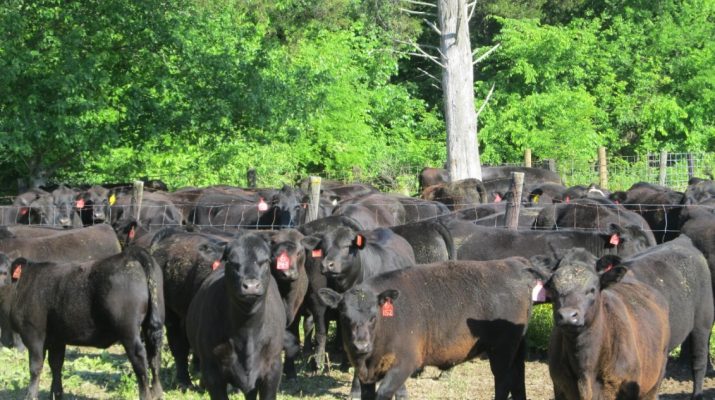Wednesdays are still busy at Shipshewana Trading Place despite the coronavirus pandemic that’s gripping the state.
That’s because hay and cattle auctions like those that happen each week at the Shipshewana business are considered an essential part of an industry that helps feed a nation.
On Wednesdays, area farmers roll into the town in trucks pulling wagons loaded with hay and trailers filled with cattle. These auctions are an important part of the process that keeps the American agribusiness machine supplying the food needed to keep grocery store shelves well-stocked.
But as the state seeks to slow down the coronavirus spread by mandating social distancing, many local agribusinesses like the Shipshewana auction have had to change the way they conduct business to meet those state guidelines and protect the health and well-being of all those involved, said Shipshewana Trading Place owner Keith Lambright.
For starters, the company is watching closely who comes to the auction and how long they stay. Lambright said he is encouraging farmers to do what they need to do and then leave.
“I tell people when you buy your load of hay, go pay for it and then go home,” he said.
Wednesday’s cattle auction has been subject to several major changes too. Lambright said he’s urging local cattle producers to come in a day early when traffic in town isn’t as busy, and drop off their cattle, and then stay home the day of the auction. That, he explained, will help the auction limit crowds on auction day
So far, Lambright said, both producers and buyers seem to understand why Lambright is making the changes he has.
“I haven’t had anyone argue with me about that yet,” he said
Finally, the auction is limiting the number of people allowed inside the arena building to 40. Also, Lambright is warning buyers to be prepared to be stopped and screened before being allowed inside the building.
“Outside my ring door, prepare to stop and answer a couple of questions,” he said. “I’m going to play by the rules. All the doors will be locked except for the arena doors and they will be screened. When I get to 40 people, I’m going to shut it off. That’s 40 potential buyers.”
Lambright said typically this time of year, he would see a lot of parents and their children arrive at the auction looking to purchase 4-H animals. That’s changed, too.
“The parent will be allowed in, the child will not,” he said. “No one under 18 will be allowed in my building. Right, wrong, rude, whatever, it’s not going to happen. I’m going to abide by the rules.”
Earlier this month, the auction company sent out letters to members of the Amish community letting them know about the new procedures at the auction in response to the coronavirus outbreak.


